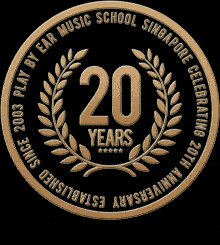
The term ‘music’ is used extensively to describe a very broad art form. It covers all melodies, rhythm and even silence that is combined or separated. If we were to take just the present-day genres and subgenres of popular music and their relevant improvisational techniques, it would be virtually impossible to learn everything. Right down to learning how to draw a treble-clef on a staff, to understanding the controversy of applying the Augmented 4th chord in renaissance church music, the truth lays bare that we simply learn what is needed and preferred because even the most renowned musicians in the world are only capable of doing what they are best at.
For classical music, the objective is to simply be able to play accordingly. A common classical syllabus will be set by the examination board such as ABRSM, Trinity and LCM, that will require the preparation of 2-4 musical pieces in a year; for which the student will need to play these pieces adequately, to persuade the examiner of a deserved passing mark. It does not matter how the student eventually gets to it because you literally do not need to understand what you are playing. All that is needed is to play according to the scores, note by note and then replicate the song itself. Practicability is utmost important, for Classical music examinations. Once complete, you will then be on your way.
P.B.E. Syllabus™ is quite the opposite. It consists of modules that the students can choose, follow or skip. Students may also learn ‘backwards’ – that is returning to earlier subjects in more detail, which is an advantage for students who were self-taught. These modules are improvisational techniques and stand-alone musical subjects that can be acquired in either a linear or non-linear fashion and at one’s learning pace to eventually apply to any song that is desired. For example, you may choose to learn how to harmonise your right hand melody before learning how to play broken chords with 9th notes on your left. Perhaps you could learn how to play in an accompaniment mode before learning to play in a solo playing style. Our P.B.E.S™ methodology does not encourage students to memorise pre-arranged songs – in our opinion, we view this approach ineffective and redundant. We want to build a student’s musical skills by allowing them to go through the process of fixing a puzzle, gaining knowledge through it, acquiring the play and bettering their improvisational skills one step at a time. Students should eventually learn how to compose and re-arrange tunes at will.
Contemporary music is not to be replicated, if so, there is no need to learn in modules. For Classical music, yes you might want to replicate, but not for Pop. As modern musicians today, we do not do music covers by replicating the original. Otherwise, every YouTube cover would sound exactly the same as the original and would be receiving copyright infringements. Picture the greatest painters and artists using tracing papers or better still invest in the highest resolution photocopier for their work. P.B.E.Syllabus™ teaches the opposite of replication, where students can develop their own music rendition and ensuring the most suitable approach while yielding the best possible results.
“P.B.E.S™ is both a structured and personalised syllabus that uses a well-organised ‘modular’ approach, similar to that of assembling a puzzle. Our students may choose what they want to learn within the context of the syllabus but can weave through sections that they may have already acquired from their previous background.” – Founder of PBE
COPYRIGHT © 2003-2024 PLAY BY EAR
